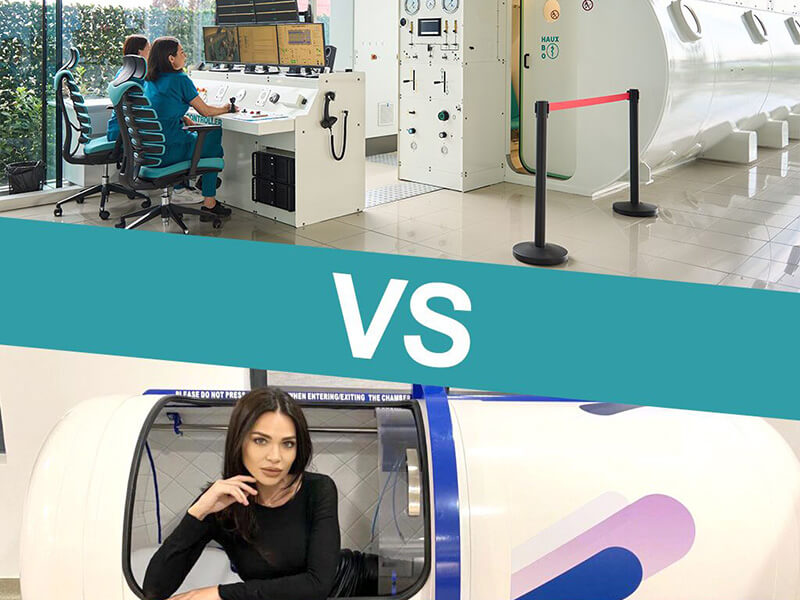
Article reviewed by: Dr. Sturz Ciprian, Dr. Tîlvescu Cătălin and Dr. Alina Vasile
New study brings hope to post-Covid recovery
After the pandemic, we all realized how complex the recovery process is after COVID-19. Although most discussions focus on the immediate aspects of physical health, recent research highlights the importance of the long-term cognitive impact.
Today, we will see how hyperbaric oxygen therapy (HBOT) is a source of hope in the recovery process, bringing significant improvements in cognitive functions and patients' quality of life.
What is COVID-19?
The COVID-19, also known as the coronavirus, was a virus that captured the attention of the whole world, becoming one of the biggest global challenges in recent decades.
Millions of lives have been affected by this virus which has caused a pandemic unprecedented in the modern era and completely changed the way humanity relates to health.
The capacities of health systems around the world have been put to the test by COVID-19. This virus was spreading extremely fast and the symptoms were different from person to person.
Thus, the pandemic caused a wave of social, economic and medical changes, from quarantine and isolation to the rapid development of vaccines.
The spread of this virus has been very difficult to control because of its unique characteristics, such as rapid human-to-human transmission and long incubation period. Also, the symptoms were not the same for everyone, thus there were cases with mild symptoms, such as fever and cough, but also cases with serious symptoms, such as severe breathing difficulties and pneumonia.
Problems after the COVID-19 Pandemic
Due to the speed of transmission, communities and governments around the world have had to implement restrictive measures to slow the spread of the virus. Although vaccines have brought hope in the fight against COVID-19, new variants continue to generate challenges.
Intriguing details from a study detailed in the New England Journal of Medicine and supported by The science magazine Nature in 2022 revealed a worrying reality. SARS-CoV-2, the culprit behind the COVID-19 pandemic, could cause microvascular damage and neuroinflammation. Consequences? The visible decrease in cognitive functions and the reduction of gray matter in the structure of the brain.
These cognitive deficits manifested post-COVID call for the urgent need for specialized interventions and treatments.
The Long-Term Effects of COVID-19 on the Brain
Another recent study involving over 800,000 participants, funded by the UK's National Institute for Health and Care Research and other leading institutions, shows just how big these deficits are and underlines the importance of innovative solutions in tackling recovery post-Covid.
The aim of the study was to see whether patients with symptoms persisting for at least 12 weeks after infection have cognitive deficits, particularly in those who reported recent disturbances such as poor memory or difficulty thinking or concentrating.
In a comparison between the group with persistent unresolved symptoms and the control group (unaffected by COVID-19), it was observed that tasks related to memory, reasoning and executive function were associated with the greatest deficits. These findings underscore the significant impact of the COVID-19 virus on cognitive function, even after recovery.
However, the long-term persistence of cognitive deficits and potential clinical implications remain uncertain. This uncertainty underscores the need for continued research and innovative approaches, such as hyperbaric oxygen therapy, to provide effective solutions and support the full recovery of patients affected by COVID-19.
Most outstanding study
A recent study on the administration of hyperbaric oxygen to patients suffering from persistent post-COVID-19 symptoms brings encouraging news in the fight against these conditions. HBOT is the only intervention shown to lead to significant improvements in patients' cognitive functions, according to a remarkable finding in a randomized controlled clinical trial.
The post-COVID-19 state remains a major problem, and this study highlighted an innovative solution. By exposing patients to daily sessions of 100% pure oxygen, administered in a pressurized barochamber, significant improvements were seen when it comes to attention, executive function and cognitive ability. Significant improvements in energy levels, sleep quality and mental health were also seen, making the results even more amazing.
However, the positive impact of this study on psychiatric symptoms such as depression and somatization is what makes it truly remarkable. The fact that the improvements correlate with the observed changes in brain structure shows that HBOT not only treats the symptoms, but also has a positive impact on the biological basis of the disease.
In addition, the therapy significantly contributed to decreased pain and improved fatigue, two crucial aspects in the recovery of post-COVID-19 patients.
Another longitudinal study showed that the benefits obtained from HBOT did not they are ephemeral. Instead, they persist for at least a year after treatment ends. This result makes hyperbaric oxygen therapy the only clinically proven treatment to date that can be considered in the fight against post-COVID-19 symptoms.
Conclusion
As the scientific community still explores the unknown territories of post-Covid challenges, hyperbaric oxygen therapy is a real support. This therapy is becoming a landmark for those who seek not only relief, but also real recovery.
At the Hyperbarium Clinic, the patient benefits from personalized, high-quality consultation and treatment, being constantly assisted by specialized medical staff. If you would like to make an appointment, you can here!




